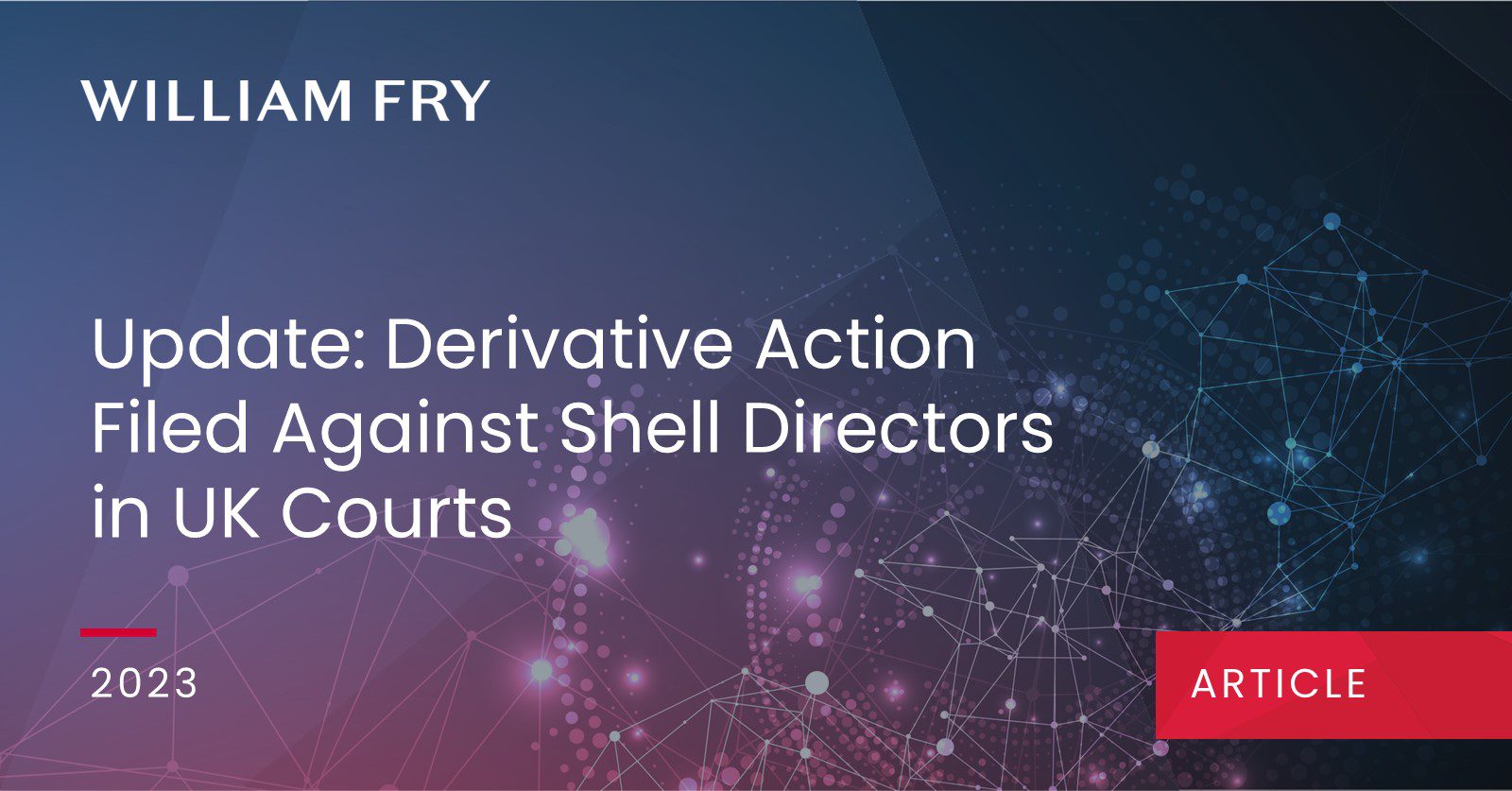Litigation in Environment, Social and Governance (ESG) related areas has increased globally in recent years.
In the main, such litigation has been instituted against governments and corporations, arising out of alleged climate damage, greenhouse gas emissions reductions and misleading advertisements. However, that landscape is gradually shifting.
As noted in our article last year, in March 2022, ClientEarth sent a pre-action letter to Shell plc (Shell) in the UK, notifying it of a potential claim against Shell’s board of directors. ClientEarth has since taken a further step, and recently announced that it has filed a derivative claim in the UK High Court against the directors. Because it is a derivative action under the UK Companies Act (UK CA), permission to issue the claim is not required. However, permission from the UK High Court is needed before the case proceed. Regardless of whether permission to continue is granted, the move by ClientEarth represents a focus away from the company itself, towards the responsibility of directors, for ESG-related actions and strategies.
ClientEarth’s derivative action has been initiated in its capacity as a shareholder. It alleges that the Shell directors have breached certain duties under the UK CA. Under section 172 of the UK CA, directors have a duty to promote the success of the company for the benefit of its members. Under section 174, directors are obliged to exercise reasonable care, skill, and diligence in discharging their duties. ClientEarth alleges that Shell is in breach of its duties to manage the climate risk facing the company. It claims that the “long-term commercial viability” of Shell is at risk by failure on the part of the board of directors to prepare properly for the transition to net zero emissions, as mandated under the Paris Agreement and a Dutch court ruling against Shell in 2021, which we understand is under appeal.
ClientEarth’s claim is representative of an increased move towards strategic litigation and shareholder activism against companies. The case goes further in that it seeks to hold the directors personally liable for breaching their duty to shareholders by failing to properly manage climate risk. It is up to the UK High Court to decide whether permission to continue the claim is granted.
Although the action is based in the UK, directors of Irish incorporated companies could be exposed to similar claims before the Irish courts.



